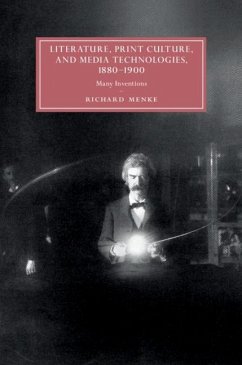From telephones and transoceanic telegraphy to typewriters and phonographs, the era of Bell and Edison brought an array of wondrous new technologies for recording and communication. At the same time, print was becoming a mass medium, as works from newspapers to novels exploited new markets and innovations in publishing to address expanded readerships. Amid the accelerated movements of inventions and language, questions about media change became a transatlantic topic, connecting writers from Whitman to Kipling, Mark Twain to Bram Stoker and Marie Corelli. Media multiplicity seemed either to unite societies or bring division and conflict, to emphasize the material nature of communication or its transcendent side, to highlight distinctions between media or to let them be ignored. Literature, Print Culture, and Media Technologies, 1880-1900 analyzes this ferment as an urgent subject as authors sought to understand the places of printed writing in the late nineteenth century's emerging media cultures.
Dieser Download kann aus rechtlichen Gründen nur mit Rechnungsadresse in A, B, BG, CY, CZ, D, DK, EW, E, FIN, F, GR, HR, H, IRL, I, LT, L, LR, M, NL, PL, P, R, S, SLO, SK ausgeliefert werden.

